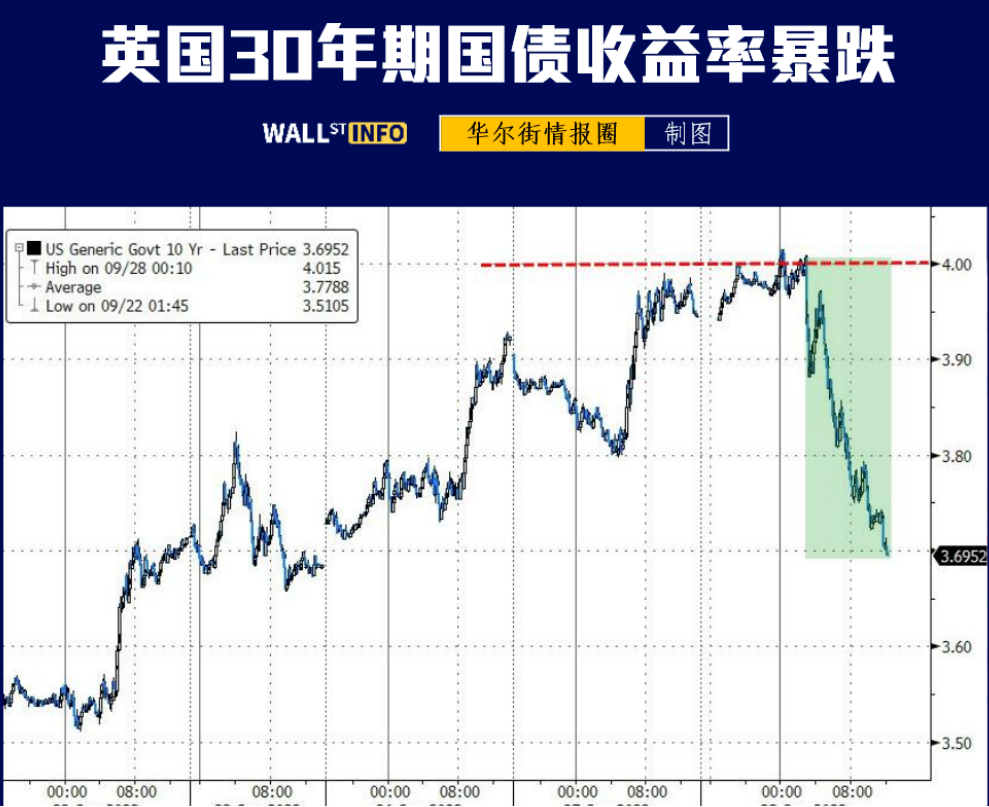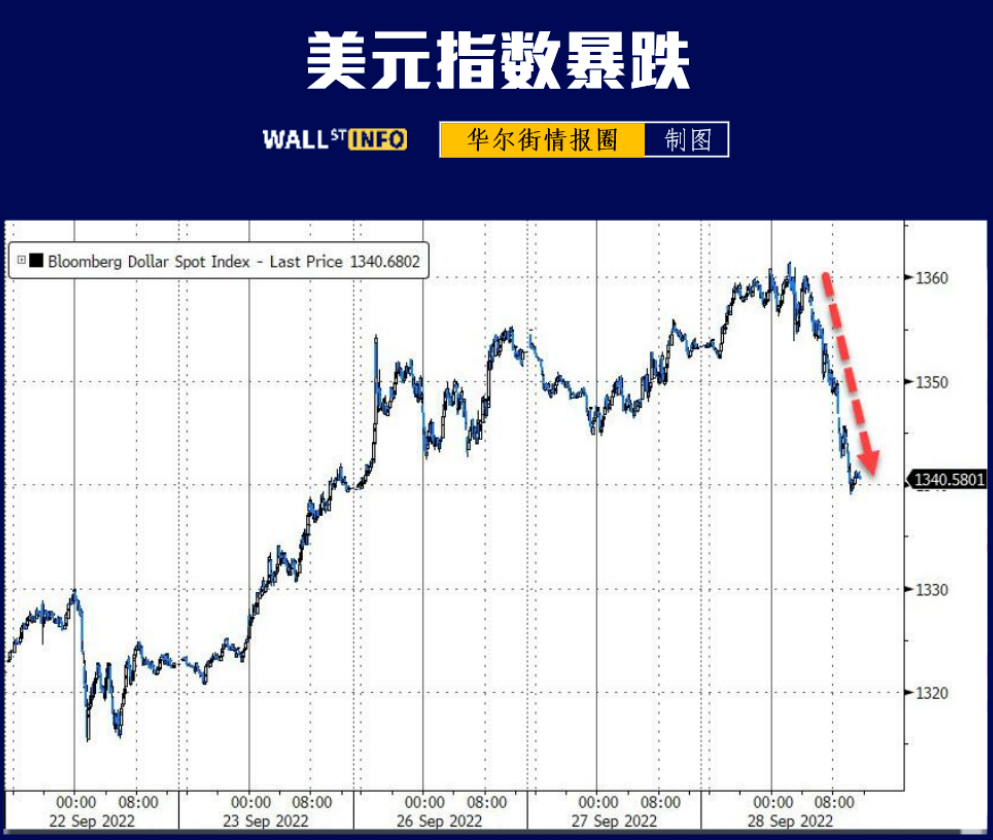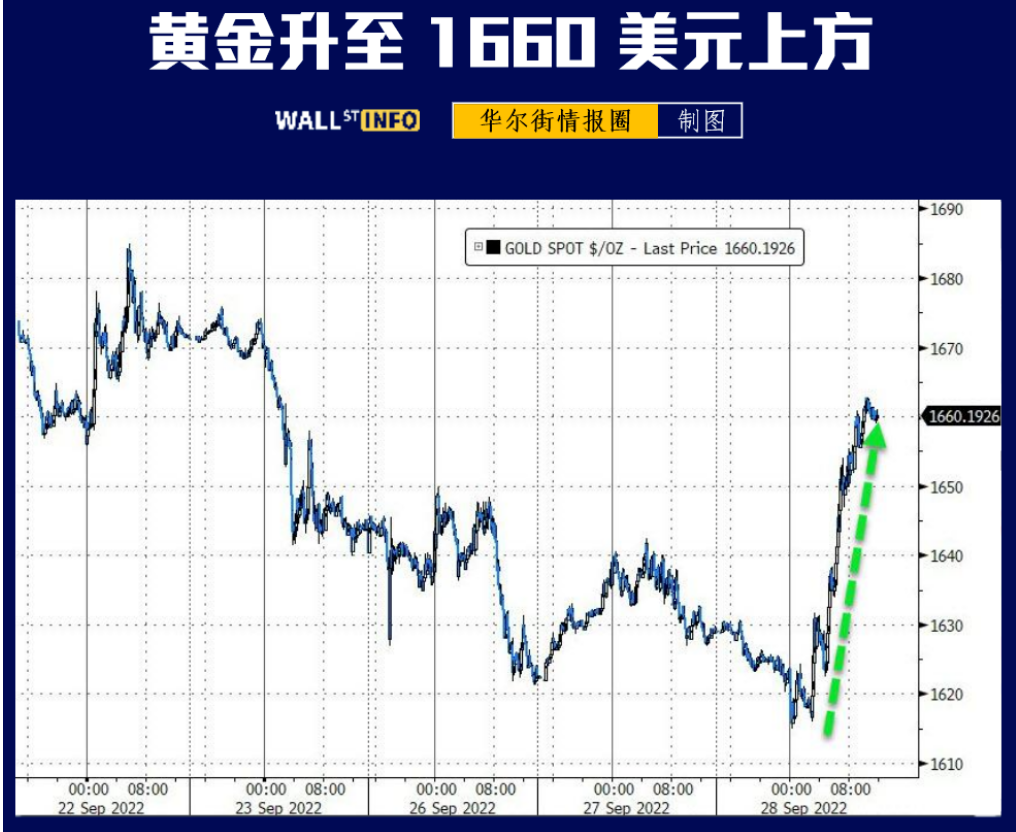Yesterday, the British saved the world, and the global market changed its course briefly.
The Bank of England announced on Wednesday that it would buy long-term government bonds (intervene in the government bond market) to prevent the market from collapsing (after the tax reduction plan of the new British Prime Minister Truss triggered the turmoil in the British financial market).
From now until October 14th, long-term government bonds will be purchased as needed to stabilize the financial market. If the market failure continues or worsens, it will pose a significant risk to the financial stability of the UK.
Some details:
1. The purpose of purchase is to restore an orderly market environment, and the scale of bond purchase will depend on the need to achieve this result.
2. This is a temporary measure, and it will be withdrawn in a smooth and orderly manner after judging that the risk of market operation has subsided.
3. Delay the plan to sell 838 million pounds of national debt (which was originally scheduled to start next week).
The Bank of England's first bond purchase operation received only 2.587 billion pounds for sale, while the central bank accepted only 1.025 billion pounds worth of bids, indicating that the market has calmed down and gilt holders want to hold these bonds temporarily.
The Biden administration has been alarmed by the market turmoil sparked by the new British administration's economic plans. Biden gathered Wednesday with his economic team for updates and directed his economic team to stay in frequent contact with partners, allies and key market players and keep him regularly informed as the situation unfolds.
Interventions have also had a direct impact on the market, and there has been a chain reaction in the global market:


Now we need to think about a question: Is a big change coming? Or is the market trend misplaced?
1. First of all, the Bank of England's actions are different from those of the Bank of Japan last week. The Bank of Japan is trying to save the depreciating yen (directly intervene in the foreign exchange market). Although the pound is also depreciating, the Bank of England's goal is to save the British bond market, and the Bank of England will withdraw from the action when the bond market situation improves.
2. The Bank of England has provided some bottom support for the market in the short term, but fiscal policy still exists, so this respite may not last long.
3. Worldwide confidence in the pound has weakened, so it is not decisive to stop the rising momentum of the US dollar. When inflation is high, limiting the rise of yield is a policy that has a negative impact on currency. Given some changes in bond yields and fears of a global recession, the dollar has been used as a safe-haven asset, which has really overwhelmed all other currencies.
Therefore, from the perspective of Britain's bailout action alone, it can only be counted as a "helping the building to fall" in China, but not a "big change" in the global market trend. The real turning point of the market depends on when the Fed is "hawkish to the top".
$E-mini S&P 500 - main 2212(ESmain)$ $E-mini Dow Jones - main 2212(YMmain)$ $E-mini Nasdaq 100 - main 2212(NQmain)$ $Gold - main 2212(GCmain)$ $Light Crude Oil - main 2211(CLmain)$

Comments
Brace yrself it's gonna be a bitter Europe winter... Question is will it be better with a new 2023 or still the same old s***?